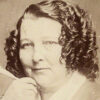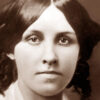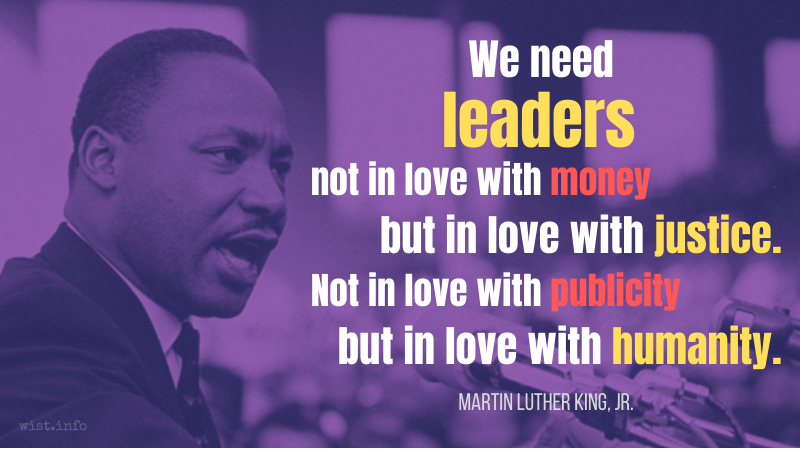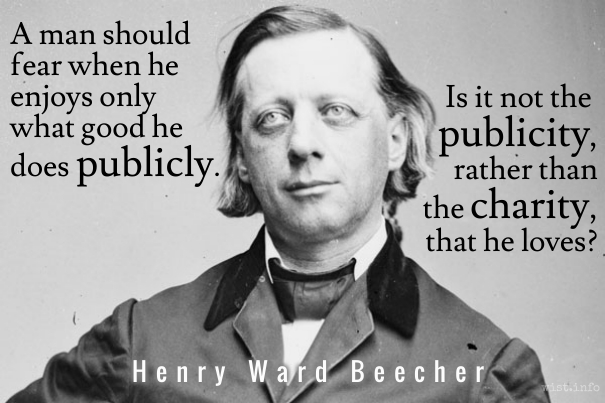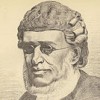AMBITION, n. An overmastering desire to be vilified by enemies while living and made ridiculous by friends when dead.
Ambrose Bierce (1842-1914?) American writer and journalist
“Ambition,” The Cynic’s Word Book (1906)
(Source)
Included in The Devil's Dictionary (1911).
Originally published in the "Devil's Dictionary" column in the San Francisco Wasp, where the entry read:
An overmastering desire to be abused by the newspapers during life, and have an epitaph by Hector A. Stuart after death.
Bierce frequently mocked the verse of Stuart, a San Francisco poet.
Quotations about:
publicity
Note not all quotations have been tagged, so Search may find additional quotes on this topic.
That charity which longs to publish itself ceases to be charity.
Eliza Cook (1818-1889) English author and poet
“Diamond Dust,” Eliza Cook’s Journal, # 90 (18 Jan 1851)
(Source)
So you pretend to fear you may be hit
By pointed epigrams, the shafts of wit?
To seem a worthy foeman you aspire,
How vain alike the fear and the desire!
Against fiercest bulls the lion’s wrath may rise,
He scorns to war with puny butterflies.[Versus et breve vividumque carmen
in te ne faciam times, Ligurra,
et dignus cupis hoc metu videri.
sed frustra metuis cupisque frustra.
in tauros Libyci fremunt leones,
non sunt papilionibus molesti.]Martial (AD c.39-c.103) Spanish Roman poet, satirist, epigrammatist [Marcus Valerius Martialis]
Epigrams [Epigrammata], Book 12, epigram 61 (12.61.1-6) (AD 101) [tr. Pott & Wright (1921)]
(Source)
"To Ligurra". (Source (Latin)). Alternate translations:
You dread my verse, and sting of wit,
Which put you in a shaking fit:
Would seem of rank to entertain
Such fears: your fears and hopes are vain.
'Tis at the bull that lions fly,
While rats run unregarded by.
[tr. Hay (1755)]
Lest a little living song
Make thy fame, Ligurra, long;
Thou would'st have thy terror seen:
Vain thy wish as fear, I ween.
At the bulls the lions rise,
Never rush on butterflies.
[tr. Elphinston (1782), Book 3, ep. 31]
You are afraid, Ligurra, lest I should compose verses on you, some short and pungent epigram, and you wish to be thought a proper object of such rear. But vain is your fear. and vain your desire! Libyan lions rush upon bulls; they do not hurt butterflies.
[tr. Bohn's Classical (1859)]
You fear, Ligurra -- above all, you long --
That I should smite you with a singing song,
This dreadful honour you both fear and hope:
Both quite in vain: you fall below my scope.
The Libyan lion tears the roaring bull,
He does not harm the midge along the pool.
[tr. Stevenson (1884)]
You are afraid, Ligurra, I should write verses on you, and some short and lively poem, and you long to be thought a man that justifies such fear. But vain is your fear, and your longing is vain. Against bulls Libyan lions rage, they are not hostile to butterflies.
[tr. Ker (1919)]
You say you're scared I'm going to aim
A lampoon at you, something brief
And lurid, and half proudly claim
You're a marked man. Wishful belief!
Misapprehended apprehension!
African lions pay attention
To bulls, they don't hunt butterflies.
[tr. Michie (1972)]
Ligurra's fearful I'll contrive
Some pungent piece, some sprightly ditty,
And longs to be considered worth it.
Longings baseless! Baseless fears!
The Libyan lion paws the Libyan bull
But does not bat the butterfly.
[tr. Whigham (1987)]
You are afraid, Ligurra, of my writing verses against you, a brief, lively poem, and you long to seem worthy of such an apprehension. But idle is your fear and idle your desire. Libyan lions roar at bulls, they do not trouble butterflies.
[tr. Shackleton Bailey (1993)]
Ah Ligurra, you’re quite afraid that I might write
About you. Some nasty, pithy, diamond-shard of spite
As is my wont. In fact, you quite like the idea.
Well, don’t get your hopes up I’ll gratify that fear.
I may be beastly but I claw with discretion,
No stepping on insects, flattered to be flattened.
[tr. Ynys-Mon (2007)]
You fear I'll write a brief and lively poem
attacking you, Ligurra, and you yearn
to seem one who would merit such a fear.
Your wish is vain and so is your concern.
Lions of Libya roar at bulls; they leave
butterflies unmolested.
[tr. McLean (2014)]
Ligurra, you fear that I might compose
Verses against you, a brief, intense poem --
Oh how you long to seem worthy of this fear.
But you fear in vain, in vain you long.
The Libyan lions growl at bulls;
They do not pester butterflies.
[tr. @sentantiq (2018)]
See also Ben Jonson (1572-1637):
Sir Inigo doth fear it, as I hear,
And labors to seem worthy of that fear,
That I should write upon him some sharpe verse,
Able to eat into his bones, and pierce
Their marrow. Wretch! I quit thee of thy pain,
Thou'rt too ambitious, and dost fear in vain:
The Lybian lion hunts no butterflies,
He makes the camel and dull ass his prize.
Rules like these don’t honor your wife. They just presume that your marriage vows are so flimsy that you can’t be trusted to uphold them unless a babysitter monitors you. It’s rather like a thief sanctimoniously announcing that he brings a parole officer every time he goes to the bank to make sure he doesn’t rob it. Good for you, dude, for knowing your own limitations — but it doesn’t make you better than the rest of us, who manage to regularly not steal things even when we’re completely alone.
Monica Hesse (b. c. 1981) American author, journalist, columnist
“The ‘Billy Graham rule’ doesn’t honor your wife,” Washington Post (11 Jul 2019)
(Source)
Experts are never right or wrong; they win or lose. Right and wrong are decided by proof; winning and losing are decided by who is doing the talking or talks the loudest, has the last, latest, or only word, and is quoted by reporters.
It takes very little fire to make a great deal of smoke nowadays, and notoriety is not real glory.
We need leaders not in love with money but in love with justice. Not in love with publicity but in love with humanity.
Martin Luther King, Jr. (1929-1968) American clergyman, civil rights leader, social activist, preacher
“The Birth of a New Age,” speech, Alpha Phi Alpha banquet, Buffalo (11 Aug 1956)
(Source)
King used the same phrases, or variations of them, for different speeches and sermons, e.g., in "Desegregation and the Future" (15 Dec 1956), he used "Leaders not in love with publicity, but in love with justice. Leaders not in love with money, but in love with humanity."
A man should fear when he enjoys only what good he does publicly. Is it not the publicity, rather than the charity, that he loves?
Henry Ward Beecher (1813-1887) American clergyman and orator
In Henry Ward Beecher and Edna Dean Proctor, Life Thoughts: Gathered From the Extemporaneous Discourses of Henry Ward Beecher (1858)
See Matthew.
The Foreign Secretary was a quite peerless orator. No matter how low the Government stood in the estimation of everyone, when the Foreign Secretary stood up and spoke — ah! how different everything seemed then! How quickly was every bad thing discovered to be the fault of the previous administration (an evil set of men who wedded general stupidity to wickedness of purpose).
There is nothing more dreadful to an author than neglect, compared with which reproach, hatred, and opposition are names of happiness.
Samuel Johnson (1709-1784) English writer, lexicographer, critic
The Rambler, #2 (24 Mar 1750)
(Source)
Some are born great, some achieve greatness, and some hire public relations officers.
Daniel J. Boorstin (1914-2004) American historian, professor, attorney, writer
(Attributed)
See Shakespeare.
People in my situation get to read about themselves whether they want to or not. It’s generally wrong. Or oversimplified — which is sometimes useful.
Gore Vidal (1925-2012) American novelist, dramatist, critic
“What I’ve Learned,” Interview by Mike Sager, Esquire (Jun 2008)
(Source)
“Be careful not to do your ‘acts of righteousness’ before men, to be seen by them. If you do, you will have no reward from your Father in heaven.
“So when you give to the needy, do not announce it with trumpets, as the hypocrites do in the synagogues and on the streets, to be honored by men. I tell you the truth, they have received their reward in full. But when you give to the needy, do not let your left hand know what your right hand is doing, so that your giving may be in secret. Then your Father, who sees what is done in secret, will reward you.
“And when you pray, do not be like the hypocrites, for they love to pray standing in the synagogues and on the street corners to be seen by men. I tell you the truth, they have received their reward in full. But when you pray, go into your room, close the door and pray to your Father, who is unseen. Then your Father, who sees what is done in secret, will reward you.”
The Bible (The New Testament) (AD 1st - 2nd C) Christian sacred scripture
Matthew 6:1-6 (NIV)
(Source)
KJV: "Take heed that ye do not your alms before men, to be seen of them: otherwise ye have no reward of your Father which is in heaven. "Therefore when thou doest thine alms, do not sound a trumpet before thee, as the hypocrites do in the synagogues and in the streets, that they may have glory of men. Verily I say unto you, They have their reward. But when thou doest alms, let not thy left hand know what thy right hand doeth: That thine alms may be in secret: and thy Father which seeth in secret himself shall reward thee openly. "And when thou prayest, thou shalt not be as the hypocrites are: for they love to pray standing in the synagogues and in the corners of the streets, that they may be seen of men. Verily I say unto you, They have their reward. But thou, when thou prayest, enter into thy closet, and when thou hast shut thy door, pray to thy Father which is in secret; and thy Father which seeth in secret shall reward thee openly."
For a successful technology, reality must take precedence over public relations, for nature cannot be fooled.
Richard Feynman (1918-1988) American physicist
Rogers Commission Report into the Challenger Crash, Appendix F “Personal Observations on Reliability of Shuttle” (Jun 1986)
Full report


